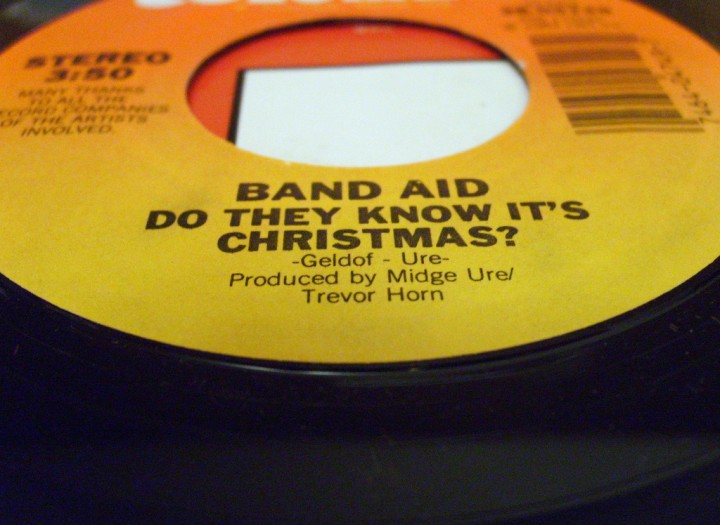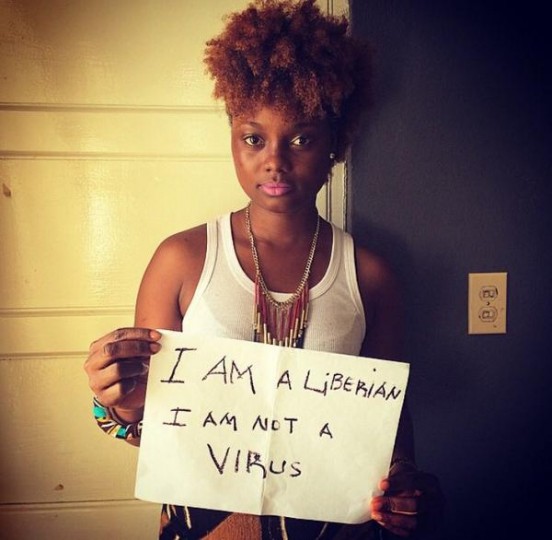
Bob is back. Sir Bob I mean.
And so is Christmas!
And so is Band Aid.
Is it really 3 decades since celebrities across the globe revealed to an unsuspecting world that “there won’t be snow in Africa” and “do they know it’s Christmas” anyway (my emphasis)?
What’s ironic to me is that 30 years on, Africans still don’t appear to know its Christmas.
Sat in my Kampala home approaching December, granted it’s not snowing outside, (although there permanently snow-capped mountains in Ruwenzori along the border with the DRC, and there was probably more snow 30 years ago), it is quite evident that it is nearly Christmas. There are Christmas decorations adorning all of the shopping centres, malls and stores that have been present since Halloween. Nat King Cole tells us of the ‘chestnuts roasting on an open fire,’ ‘Boda boda’ drivers (motorbike ‘taxi’s) let their Santa hats do the talking.
There’s the manic traffic (worse than the normal manic traffic) that’s building up in preparation for Christmas and the impending school closure for the holidays. Most of all it’s the opportunity to hike up prices that’s impacting everyday Ugandans the most.
I’ve also lived in Nigeria in ‘West Africa’ and I know it’s the same there.
At Christmas time, each year suppliers of goods and services hike up their prices. Even I’ve noticed the subtle upward slide in prices at the supermarkets. This is also the case in local markets as the cost of staple goods such as Matoke (a starchy, green banana that is cooked and often mashed or pounded into meal) has almost doubled. Transport costs have increased, since many Ugandans in Kampala return to their village or neighbouring countries such as DRC, Rwanda, etc., (or vice versa) for Christmas (Uganda borders with 5 countries in Africa). Even rents go up at this time of year.
It’s also ‘peak season’ for tourism to the many beauty spots in the ‘Pearl of Africa’. It’s the main school and government holiday time. It may surprise those of us listening to the Band Aid lyrics that the majority of the population is Christian – some 85.2% according to the latest census.
So yes, despite poverty and hunger, and now Ebola, ‘Africans’ do know it’s Christmas – “again”.
I admire Sir Bob and Midge Ure OBE though (and as a child of the ‘80s am a dedicated Ultravox groupie, and can claim to have – or at least had – the Boomtown Rats ‘Tonic for the Troops’ on vinyl!) for at least responding to the call of those in need.
Back 30 years ago when global information was minimal they highlighted a critical need in the Horn of Africa that the world was ignoring. And the world responded.
Granted, they reinforced negative stereotypes of the ‘poor black babies’ that were ‘starving in Africa,’ but that’s already been widely criticised (see also the blog, Celebrity Activism in this site).
Unfortunately, we live in a society in ‘the West’ where we need someone like Sir Bob, Angelina, David and now even Victoria Beckham (??!!) to add glamour to the plight of the poor, mostly in ‘Africa’. Despite having lived in and out of the continent since 2001, it’s hard not to fall prey to the generalisations of the needs of ‘Africa’.
Back to Bob.
Amidst pressure, the lyrics to the latest version of the Band Aid single, “Do they know it’s Christmas” have been modified, somewhat. Africa is now regionalised. It’s just the West Africans who will have “no joy or peace” this Christmas. That’s 16 of the 55 countries on the continent, despite only five countries being impacted by Ebola, the reason for resurrecting Band Aid.
The devastation of Ebola
Ebola is devastating and the world needs to support those affected.
According to the BBC, in just eight months, the disease has killed more than 5,000 people. The greatest impact has been concentrated in five countries in the west of the continent – Liberia, Guinea, Sierra Leone, Nigeria, Mali (referred to as ‘Ebolaland’ by Sir Bob).
There has been 1 death in the US. The total number of cases of Ebola reported is more than 14,000 which, the WHO affirms are underestimates and the actual figure which is ‘probably much closer to 20,000’ cases (See the BBC Mapping the Outbreak for specifics).
It’s not just the statistics that is most overwhelming: it’s the devastation to families, as Sir Bob rightly points out.
It’s the fact that you can’t physically say goodbye to a member of your family who is dying or has just died from the disease – “Where a kiss of love can kill you, and there’s death in every tear”. Ebola denies intimacy. You can’t go near your loved one, touch them, hug them, or look at them closely. It denies children their parents, parents their children, wives their husband, husbands their wife, grandparents, extended family members, etc.
It robs a country of its medical personnel, teachers, carers, etc. It leaves behind orphans, wrecks public infrastructures. While these 5 countries grapple with the immediate medical impact of the disease, the longer term impact will be felt for many years to come.
Singing against the foul little plague
With the consistent reminders from international agencies of insufficient emergency funding to tackle the “foul little plague,” Christmas is timely. And in terms of its fundraising mission, it’s working. Sales have been “manic”’ where “Within four or five minutes we had a million quid.”
Mass purchasing of the single slowed down iTunes (who will give 100% of the proceeds of the sales) and even the UK government responded – the single will be tax free! And it’s not even Christmas yet!
Since the single has gone on sale, premiered at the X-factor, I am now immersed in the glitz and glamour of the initiative. The media focus is about ‘reaching out’ and being touched by Harry Stiles. I also confess being immersed in why Adele didn’t answer Sir Bob’s call (which her manager is now defending).
There is a danger of losing sight of the reasons behind this mass mobilisation of celebrities.
Despite a “tweak” in the lyrics, there is a danger that 30 years on, the stereotype of a continent (even though the lyrics are admittedly confined to West Africa) remains unchallenged and the role of the ‘West’ typecast once again as the continent’s provider and protector.
The most revealing is the flippant comment, to me anyway, made by Sir Bob:
“It really doesn’t matter if you don’t like this song … what you have to do is buy this thing.”
It’s just about the money.
However, putting “this thing” aside, the public attention surrounding the initiative provides opportunities for development education.
Development Education and debating Band Aid
Other than the immediacy of the need to challenge, once again, the persistent stereotyping of Africa and now more personally West Africa and its people, it offers opportunities to promote learning at a range of levels and subjects:
- Promote the facts.
- Discuss the issues – it’s not just about the medical reality of Ebola, it’s about justice, poverty, wealth, the media, quasi-informed celebrities hijacking development, governance, global diversity, geography, etc.
- It provides the opportunity to debate the issues and challenge our own. stereotypes. See for example Nigerian novelist Chimamanda Adichie’s TED talk on The Dangers of a Single Story or read the classic satire on How to Write About Africa by Binyavanga Wainaina published in Granta.
- What did the critics say about Band Aid 30 years ago? See Colm Regan’s piece on Live Aid: a challenge to the experts? (1986) from the Trócaire Development Review.
If you go out and “buy this thing” (as I highly suspect I bought the original 30 years ago) and respond to the call for much needed emergency funds to tackle the epidemic, it’s also your responsibility to find out the facts, challenge the assumptions and be aware that your 99p download isn’t enough to tackle the underlying issues.

The great news 30 years on is that technology is available to everyone throughout the world, so ‘Africans’ for example are able to challenge our stereotypes and perceptions and let the world know what they think and feel about this.
We just need to listen.
There is a human consequence not just to the epidemic, but also to our ignorance.
_______________________________
For those of you who want to sing along while you ’raise a glass’ to ‘feed’, ‘feel’ and ‘heal’ “the world” (and not just West Africa) this Christmastime, here are the revised lyrics:
Lyrics to “Do they know it’s Christmas?” by Band Aid 30
It’s Christmas time, and there’s no need to be afraid
At Christmas time, we let in light and banish shade
And in our world of plenty, we can spread a smile of joy
Throw your arms around the world
At Christmas time
But say a prayer, pray for the other ones
At Christmas time, it’s hard but while you’re having fun
There’s a world outside your window, and it’s a world of dread and fear
Where a kiss of love can kill you, and there’s death in every tear
And the Christmas bells that ring there are the clanging chimes of doom
Well tonight we’re reaching out and touching you
No peace and joy this Christmas in West Africa
The only hope they’ll have is being alive
Where to comfort is to fear
Where to touch is to be scared
How can they know it’s Christmas time at all
Here’s to you
Raise a glass to everyone
And here’s to them
And all their years to come
Let them know it’s Christmas time after all
Feed the world, let them know it’s Christmas time again
Feel the world, let them know it’s Christmas time again
Heal the world, let them know it’s Christmas time again
